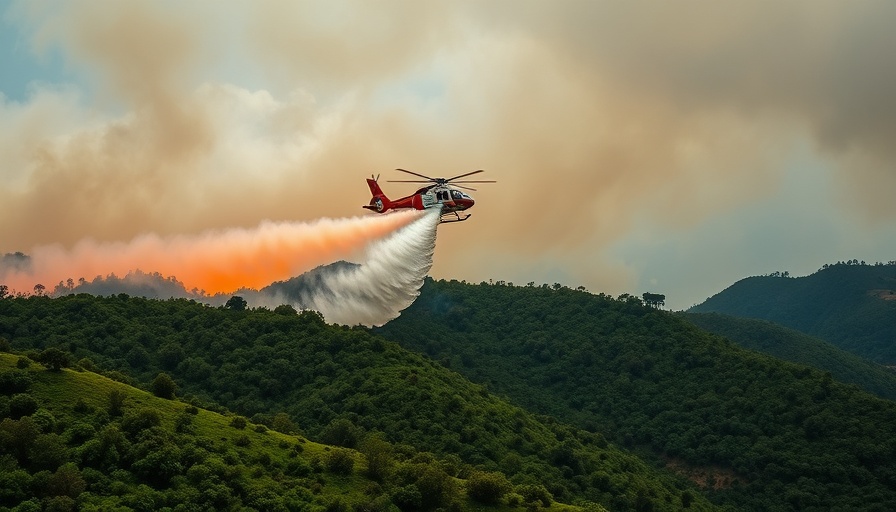
Wildfires Rage: A Dual Crisis Affecting Turkey and Syria
In a harrowing turn of events, wildfires have escalated into a crisis affecting both Turkey and Syria. On July 5, 2025, Turkey dispatched firefighting aircraft to combat the rapidly advancing flames in northwest Syria, particularly in the Latakia region, as fires raged on its own territory. This mutual struggle against wildfires highlights the urgent climate challenges faced by neighboring countries.
The Battle Unleashed by Nature
Since June 26, Turkey has been embroiled in a fierce battle against wildfires, which have taken the lives of three forestry workers. Turkish officials reported that most of the fires in Izmir province were caused by faulty power lines, a stark reminder of the unpredictability of climate-related disasters. While Turkish firefighters achieved success in controlling 10 major fires, the sudden flare-up in Turkey has complicated efforts to deliver aid to its neighbor.
The Human Impact of Environmental Catastrophe
As fires continue to encroach upon residential areas in Hatay province, local authorities had to evacuate around 920 homes to ensure the safety of residents. Governor Mustafa Musatli confirmed the threat posed by flames exacerbated by strong winds. The dire situation has drawn attention to the need for coordinated emergency responses and international aid, shedding light on the interconnectedness of environmental crises and humanitarian efforts.
Regional Cooperation Amidst Chaos
The coordination between Turkey and Syria in sending emergency responses exemplifies the vital role of regional cooperation in crisis management. Raed Al Saleh, the Syrian minister of emergency and disaster management, noted that the arrival of Turkey's firefighting support was delayed, yet the commitment to assist reflects a unity forged in adversity. This cross-border collaboration is essential for effective disaster prevention and mitigation.
Future Implications: Preparedness and Response Strategies
As wildfires become more frequent and severe due to climate changes, it is crucial for both Turkey and Syria to reevaluate their emergency preparedness strategies. The experiences from this disaster may serve as lessons for better resource allocation, identifying fire-prone areas, and enhancing public communication regarding evacuation procedures. Moreover, investment in better firefighting technologies and strengthening international partnerships could improve future responses.
Common Misconceptions About Wildfire Causes
Many people associate wildfires primarily with drought and heat, overlooking other underlying causes such as faulty infrastructure, land-use changes, and human negligence. Understanding these factors can help communities develop more effective prevention strategies and policies aimed at minimizing risk and damage.
The Global Context: Wildfires around the World
Wildfires are not solely a local problem but a global phenomenon. From the devastating fires in Australia to those witnessed on the West Coast of the United States, the world is facing a critical moment in its environmental history. By viewing the crisis in Turkey and Syria through a global lens, we recognize the need for collective action to combat climate change and its devastating effects.
Conclusion: Taking Action in the Face of Adversity
The ongoing wildfires in Turkey and Syria serve as a reminder of the urgent need for preparedness and international collaboration. As governments and organizations come together to fight these natural threats, it is essential that communities also take action. Individuals can contribute by raising awareness, advocating for responsible land management, and supporting victims of natural disasters. Now is the time to mobilize resources and commit to a future resilient to such crises.
 Add Row
Add Row  Add
Add 




 Add Row
Add Row  Add
Add 

Write A Comment